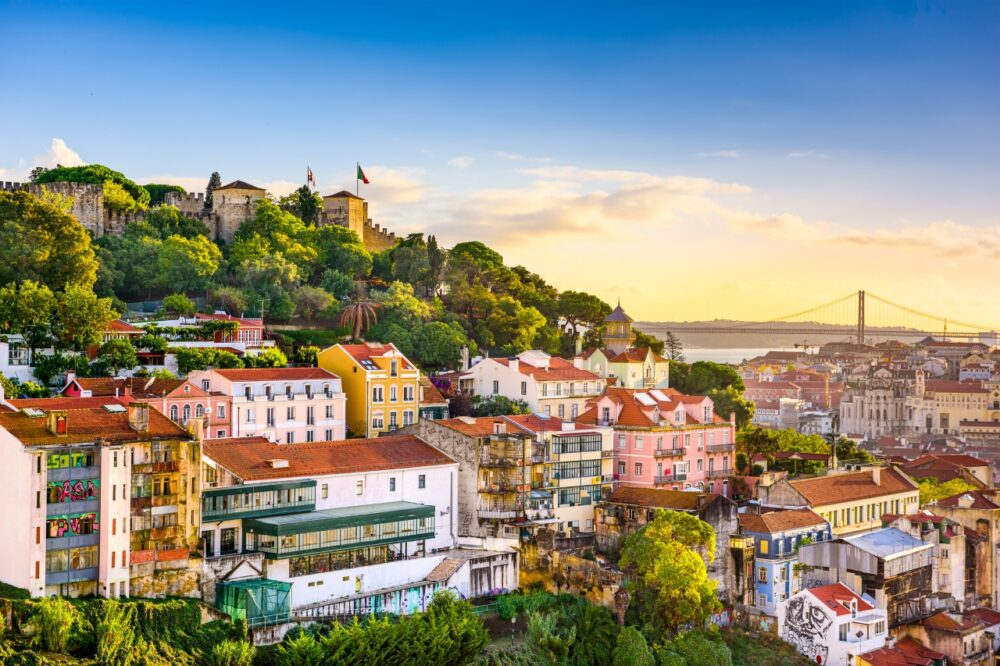
Introduction
Portugal is a country that has it all—sun-drenched beaches, vibrant cities, charming medieval towns, and a rich cultural history that dates back centuries. Whether you’re wandering through the narrow streets of Lisbon, sipping port wine in Porto, or hiking along the dramatic cliffs of the Algarve, Portugal offers a unique blend of tradition, natural beauty, and modern vibrancy. This southern European gem is small enough to explore at a leisurely pace, yet diverse enough to keep you coming back for more.
The first time I visited Portugal, I was blown away by the warmth of the people, the delicious food, and the stunning landscapes that changed as I travelled from north to south. I spent mornings wandering through ancient castles and afternoons lounging on golden beaches. Portugal has an irresistible charm that blends the old and the new, making it one of the most captivating destinations in Europe. Here’s why you should consider Portugal for your next adventure.
Table of Contents
Reasons You Should Visit Portugal
1. A Rich Tapestry of History and Culture
Portugal’s history is a fascinating mix of Roman, Moorish, and Christian influences, all of which have left their mark on the country’s architecture, culture, and traditions. Lisbon is the perfect place to dive into Portugal’s past. Wandering through the Alfama district, with its winding streets and ancient buildings, feels like stepping back in time. The Belém Tower and Jerónimos Monastery are stunning examples of the country’s maritime history, dating back to the Age of Discoveries when Portuguese explorers set sail to the far corners of the globe.
But history isn’t confined to Lisbon. In Evora, a beautifully preserved medieval town in the Alentejo region, I spent hours exploring the Roman Temple, cathedral, and eerie Chapel of Bones—a small chapel decorated with human bones. Portugal’s ability to seamlessly blend ancient history with modern life is one of its greatest attractions.
2. Stunning Coastlines and Outdoor Adventures
Portugal’s coastline is nothing short of spectacular, with golden beaches, rugged cliffs, and charming fishing villages. The Algarve in the south is famous for its stunning beaches like Praia da Marinha and Ponta da Piedade, where dramatic limestone cliffs meet crystal-clear waters. I spent a few days in Lagos, kayaking through hidden sea caves and swimming in secluded coves—a must-do if you love the sea.
For surfers, the west coast around Ericeira and Peniche offers some of the best waves in Europe, and even if you’re not into surfing, the dramatic coastline is worth exploring. Further north, the Douro Valley and Peneda-Gerês National Park are perfect for hiking, with breathtaking landscapes of terraced vineyards and rolling hills. If you love outdoor adventures, Portugal has endless options.
3. Delicious Food and Wine
Portuguese cuisine is simple yet incredibly delicious, with a strong emphasis on fresh ingredients and bold flavours. You can’t visit Portugal without trying bacalhau—the country’s famous salted cod, prepared in countless ways. In Lisbon, I found myself constantly drawn to the Mercado da Ribeira, where I sampled local dishes like caldo verde (kale soup), sardinhas assadas (grilled sardines), and pastéis de nata, the irresistible custard tarts that are best enjoyed warm with a sprinkle of cinnamon.
Portugal is also a paradise for wine lovers. The Douro Valley near Porto is the birthplace of port wine, and taking a tour of the vineyards is a fantastic way to learn about the production process while tasting some of the world’s best wines. Whether you’re enjoying a glass of Vinho Verde in the north or a full-bodied Alentejo red, Portugal’s wine culture is one of the highlights of any visit.
4. Warm Weather and Laid-Back Lifestyle
One of the things I loved most about Portugal is the laid-back lifestyle. The pace of life here is slower, more relaxed, and the locals are incredibly welcoming. It’s easy to fall into the rhythm of Portuguese life—long, leisurely lunches, afternoon strolls through cobbled streets, and evenings spent watching the sunset over the ocean. I spent a week in Funchal, the capital of Madeira, where the warm weather, lush landscapes, and relaxed atmosphere made it hard to leave.
Portugal’s climate is one of its biggest draws, especially if you’re looking for a sunny escape. With over 300 days of sunshine a year in some regions, you can explore cities and beaches year-round. Whether you’re sipping coffee in a Lisbon café or lounging on a beach in the Algarve, the warmth of Portugal is as much about the people as it is about the weather.
5. Affordable and Accessible
Compared to many other European destinations, Portugal remains refreshingly affordable. Whether you’re enjoying a meal in a local restaurant, staying in a charming guesthouse, or travelling across the country by train, you’ll find that your money goes further here. I was pleasantly surprised by how affordable the food and drink were, especially considering the quality. A delicious seafood meal with a glass of wine costs a fraction of what you might pay in other Western European countries.
Public transportation in Portugal is also efficient and reasonably priced. The train network connects all the major cities, and I found it easy to travel from Lisbon to Porto in just a few hours. Even renting a car to explore the more remote areas of the Alentejo and Douro Valley was affordable and hassle-free. Portugal offers great value for money, making it an ideal destination for budget-conscious travellers.
Best Places to Visit in Portugal
1. Lisbon

Lisbon, Portugal’s capital, is one of Europe’s most vibrant and charismatic cities. I loved starting my days with a ride on the iconic Tram 28, which winds through the narrow streets of Alfama and up to Castelo de São Jorge, offering stunning views over the city and the Tagus River. The Belém district is another must-see, with its grand monuments like the Belém Tower and the Monument to the Discoveries, celebrating Portugal’s maritime past.
But what really captured my heart was the city’s energy. Whether I was sipping a coffee in a traditional pastelaria, exploring the nightlife in Bairro Alto, or taking in the street art in LX Factory, Lisbon has a unique blend of history and modernity. Don’t miss the Time Out Market, where you can sample dishes from some of the city’s best chefs under one roof.
2. Porto
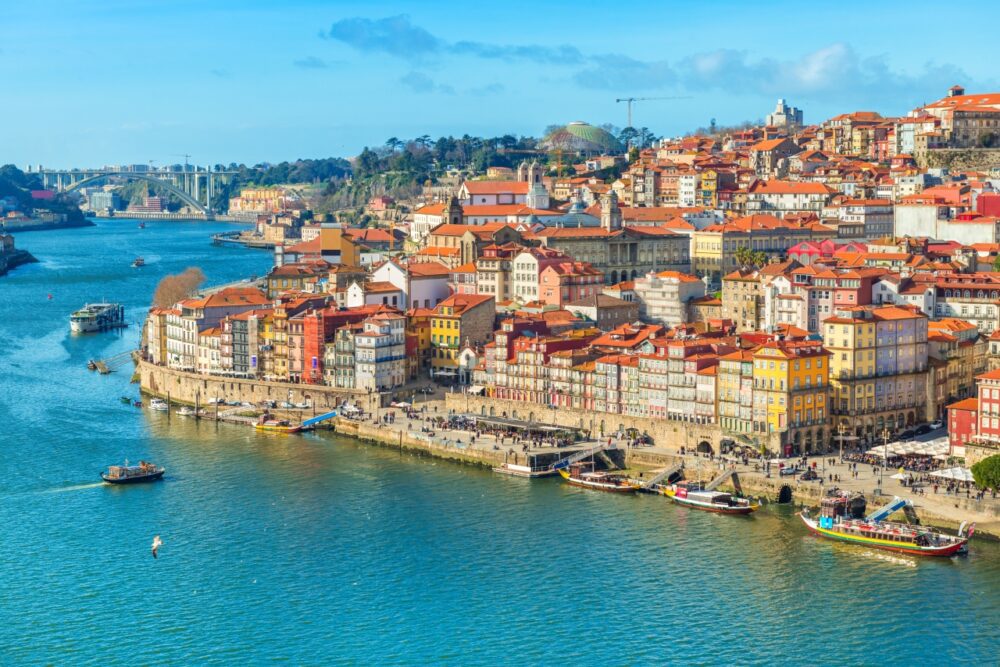
Porto, Portugal’s second-largest city, is an absolute gem. Famous for its port wine, the city is a stunning mix of old-world charm and vibrant culture. I spent hours wandering the steep, winding streets of Ribeira, Porto’s historic riverside district, where colourful houses lean precariously over narrow alleys. A visit to one of the port wine cellars across the river in Vila Nova de Gaia is a must—I did a tasting at Graham’s and learned a lot about the different styles of port.
One of the highlights of my time in Porto was crossing the iconic Dom Luís I Bridge, which offers incredible views of the city and the Douro River. Porto’s laid-back atmosphere, combined with its stunning architecture, made it one of my favourite cities in Portugal.
3. Funchal
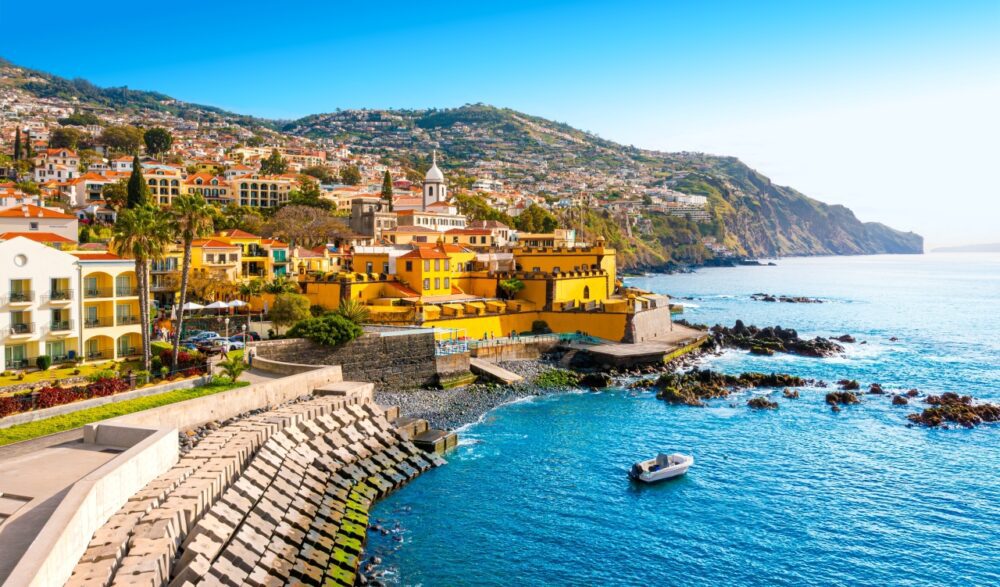
Located on the island of Madeira, Funchal is a paradise for nature lovers. The city itself is beautiful, with a mix of historic buildings, tropical gardens, and stunning ocean views. One of my favourite experiences was taking the cable car up to the village of Monte and then coming back down in one of the traditional toboggan sledges—a thrilling ride that’s unique to Funchal!
Madeira’s landscapes are unlike anything I’ve seen elsewhere in Portugal. From the lush Laurisilva Forest, a UNESCO World Heritage site, to the dramatic cliffs of Cabo Girão, the island is a hiker’s dream. If you visit, don’t miss trying the local bolo de caco, a type of garlic bread that’s the perfect snack after a long hike.
4. Evora
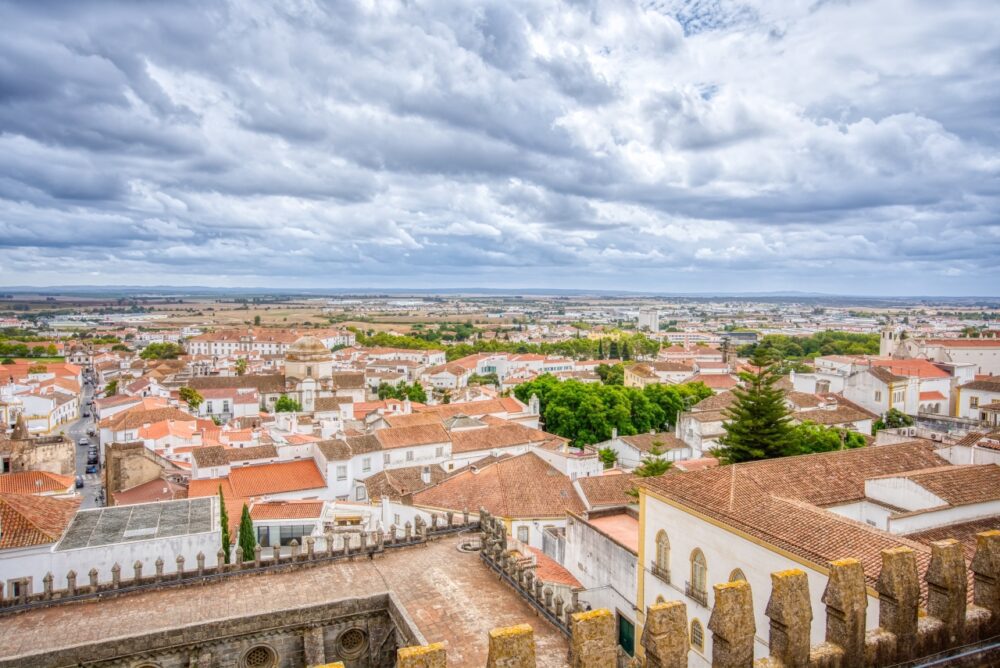
Evora is one of Portugal’s most beautifully preserved medieval towns, located in the heart of the Alentejo region. The town’s Roman Temple, Gothic cathedral, and narrow, cobblestone streets make it feel like a living museum. I spent an afternoon wandering through Evora’s old town, marvelling at the blend of architectural styles and enjoying the slower pace of life in this charming town.
The Chapel of Bones is one of the more eerie attractions in Evora. It’s a small chapel where the walls are lined with human bones, a reminder of the transient nature of life. While it’s a bit macabre, it’s also one of the most memorable sights in Portugal.
5. Coimbra
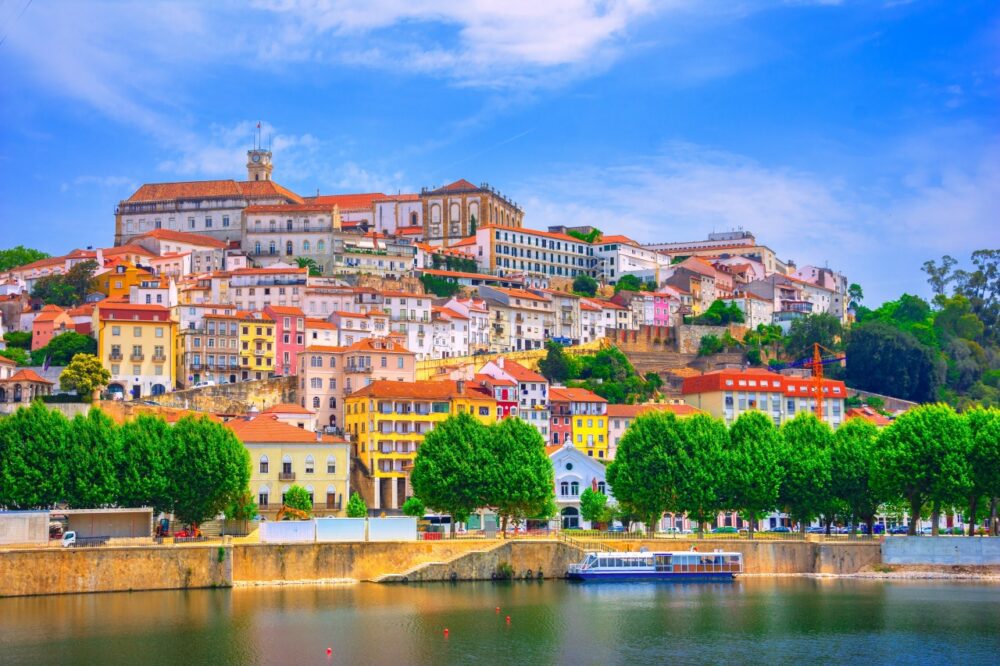
Home to one of the oldest universities in Europe, Coimbra is a city with a rich academic history and a lively student population. The University of Coimbra, with its stunning Joanina Library, is a UNESCO World Heritage site and an absolute must-see. The library, with its elaborately decorated ceilings and thousands of ancient books, is one of the most beautiful I’ve ever seen.
Coimbra’s old town is a maze of narrow streets, packed with small shops and cafés. I loved the city’s relaxed atmosphere, especially in the evening when fado music drifts through the air from local bars. Coimbra has a special charm, and its student traditions and historic atmosphere make it a unique stop on any trip to Portugal.
6. Lagos
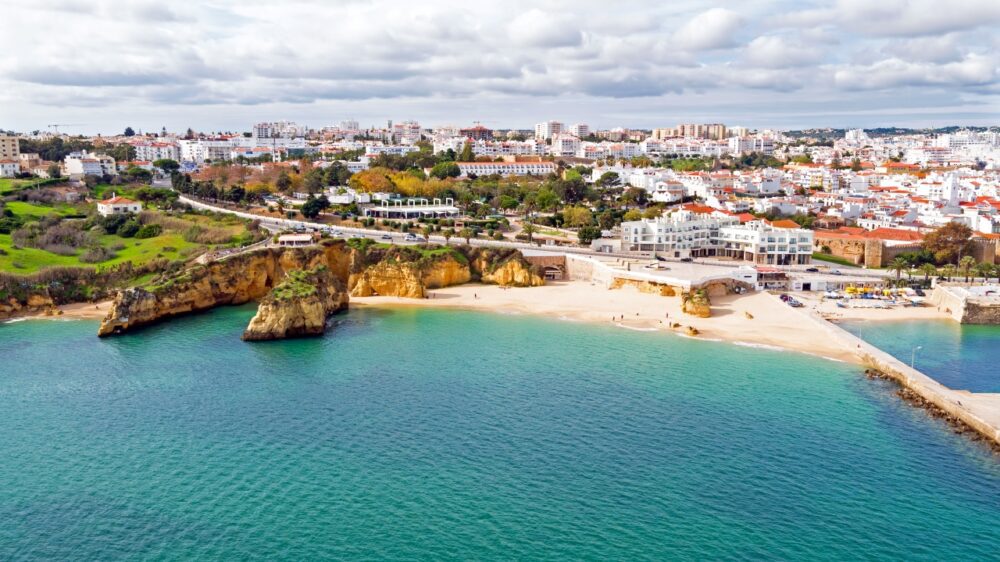
Located in the Algarve, Lagos is a seaside town known for its stunning beaches and vibrant nightlife. The dramatic cliffs of Ponta da Piedade are some of the most beautiful in Portugal, and I spent a morning kayaking through the sea caves and natural arches that dot the coastline. The beaches here, like Praia Dona Ana and Praia do Camilo, are perfect for swimming and sunbathing.
Lagos also has a rich history, with its old town filled with historic buildings and charming squares. The Forte da Ponta da Bandeira, an old fort that once protected the city, is worth a visit for its great views over the harbour. In the evenings, Lagos comes alive with music, bars, and restaurants, making it a perfect place to relax after a day at the beach.
7. Braga
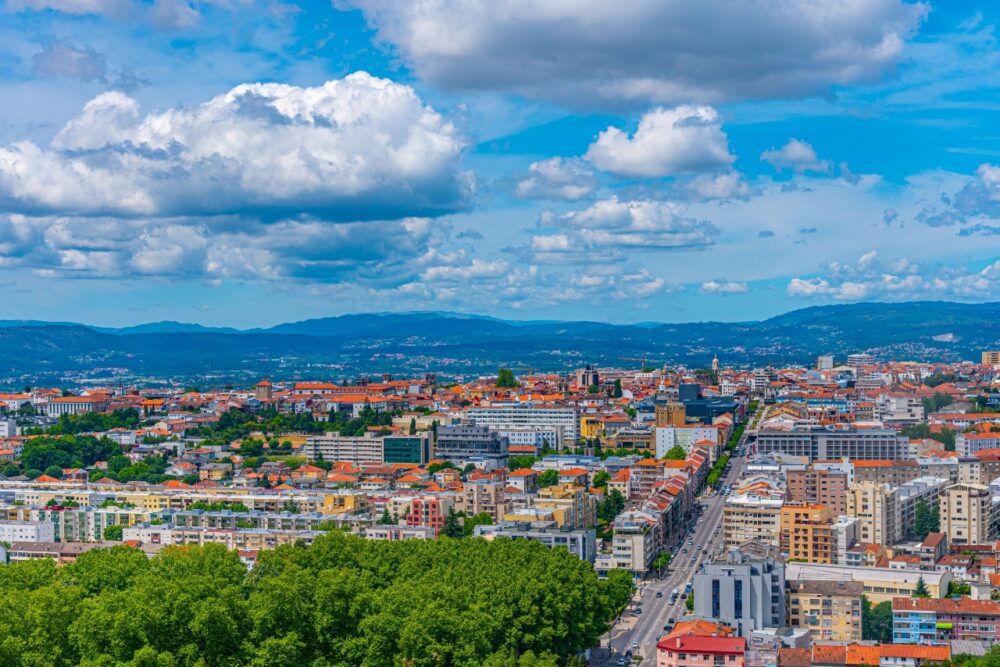
Braga is often called the Rome of Portugal because of its many churches, but it’s also a lively, modern city with a youthful spirit. The city’s most famous landmark is the Bom Jesus do Monte, a sanctuary located on a hilltop just outside the city. Climbing the grand baroque staircase to reach the top is a bit of a workout, but the views over Braga are well worth it.
Braga’s old town is filled with beautiful plazas and gardens, and I loved wandering through Praça da República and stopping for a coffee in one of the many cafés. The city has a relaxed, welcoming vibe, and its mix of history and modernity makes it a great place to explore.
8. Faro
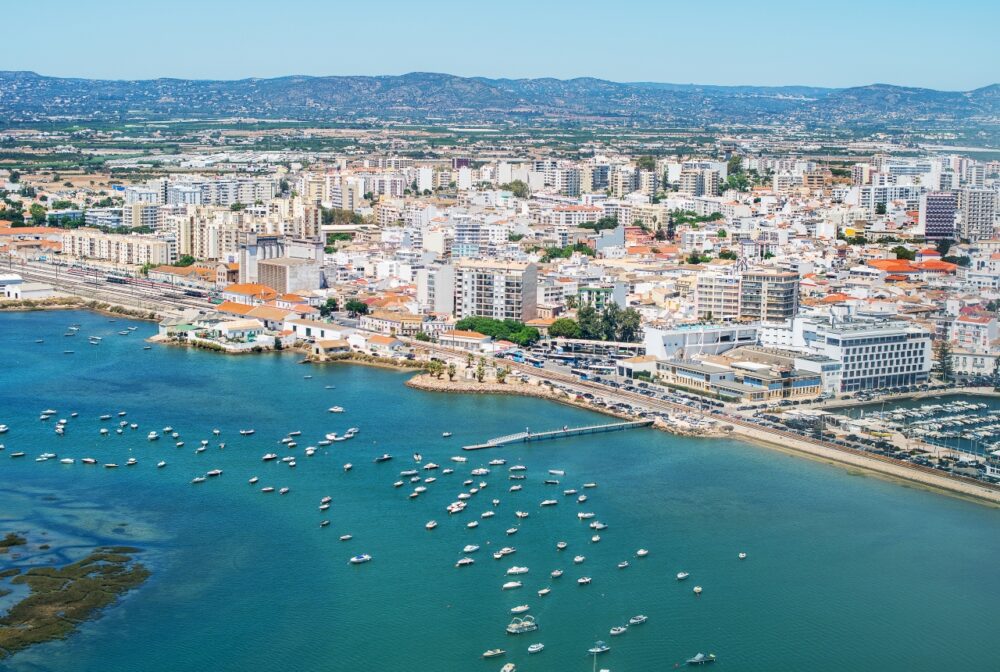
Faro is the capital of the Algarve, and while many visitors use it as a gateway to the region’s beaches, the city itself is worth spending time in. The Old Town, surrounded by ancient city walls, is a quiet, picturesque place to explore, with narrow cobbled streets and whitewashed houses. I particularly enjoyed visiting the Arco da Vila, one of the old city gates, and the Carmo Church, with its unique Chapel of Bones.
Faro is also a great base for exploring the Ria Formosa Natural Park, a beautiful coastal lagoon that’s perfect for birdwatching and boat trips. If you’re looking to escape the busy beach towns, Faro offers a more laid-back, authentic Algarve experience.
9. Obidos
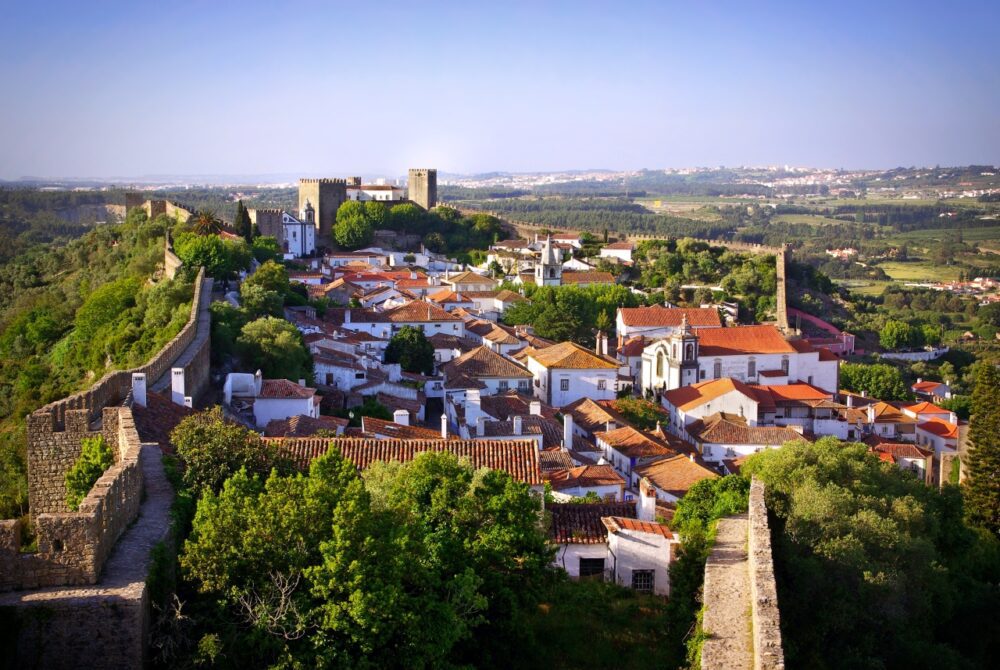
Obidos is a small, fortified town that feels like it’s been frozen in time. The town’s medieval walls, cobblestone streets, and whitewashed houses covered in colourful bougainvillaea make it one of the most picturesque places I visited in Portugal. I loved walking along the town’s walls, which offer panoramic views of the surrounding countryside.
One of Obidos’s most famous events is its annual Medieval Market, where the town transforms into a medieval village with costumed performers, traditional food, and jousting tournaments. Even outside of festival season, Obidos’s charming atmosphere and history make it a must-visit.
10. Aveiro
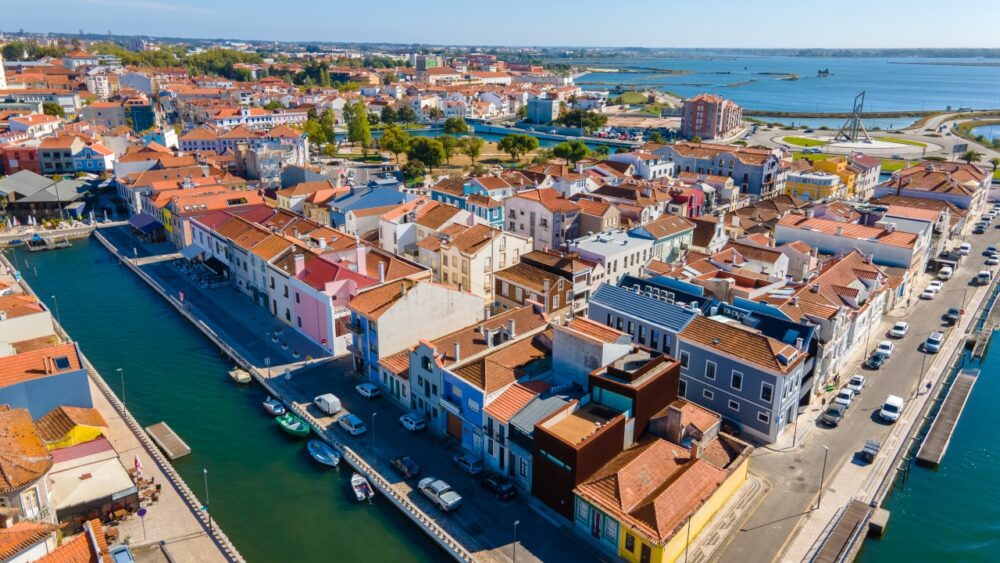
Known as the Venice of Portugal, Aveiro is a charming coastal town crisscrossed by canals and brightly coloured boats called moliceiros. The town has a laid-back feel, and I loved wandering along the canals, stopping at local bakeries to try the famous ovos moles, a sweet treat made from egg yolks and sugar.
Aveiro is also a great base for exploring the nearby Costa Nova beaches, famous for their brightly painted striped houses. If you’re looking for a mix of culture, history, and beach time, Aveiro is the perfect destination.
Travel Tips for Portugal
Getting Around Portugal
Portugal’s public transport is reliable and affordable, with trains and buses connecting major cities like Lisbon, Porto, and Faro. Trains are the best way to travel between cities, especially on the scenic Alfa Pendular high-speed trains. Buses are more frequent and better for reaching smaller towns or coastal areas. In cities, trams, buses, and metro systems are efficient, particularly in Lisbon and Porto. If you plan to explore rural areas or the Algarve coastline, renting a car offers flexibility, but watch out for narrow roads in older towns.
Best Time to Visit Portugal
The best time to visit Portugal is in spring (March to May) or autumn (September to October) when the weather is warm but not too hot, and tourist crowds are smaller. These seasons are ideal for exploring cities, hiking, or enjoying the beaches of the Algarve. Summer (June to August) is great for beach holidays, but it can get very hot, especially inland, and popular spots can be crowded. Winter is mild in the south, making it a good time to visit Lisbon or Madeira, but expect rain in the north.
Passport and Visa Requirements for Portugal
Portugal is part of the Schengen Area, so visitors from EU/EEA countries can enter with just an ID card. Travellers from US, UK, Canada, Australia, and other countries can stay visa-free for up to 90 days within the Schengen Zone. Ensure your passport is valid for at least three months beyond your planned stay. If you’re visiting other Schengen countries like Spain or France, border checks are minimal, but always carry your ID or passport.
Currency and Banks in Portugal
Portugal uses the Euro (EUR), and ATMs are widely available in cities and towns. Credit and debit cards are commonly accepted, even for small purchases, but it’s always a good idea to carry some cash, especially for local markets or smaller businesses. Tipping is not obligatory, but rounding up the bill or leaving 5-10% in restaurants is appreciated. Be cautious of currency exchange kiosks at airports, as they often offer poor rates—ATMs or bank exchanges provide better value.
Language and Useful Phrases to Know
The official language is Portuguese, and while English is spoken in tourist areas, especially in Lisbon and Porto, it’s helpful to learn a few basic Portuguese phrases. Try “Olá” (hello), “Obrigado” (thank you), and “Por favor” (please). In more rural areas, English is less common, so having some Portuguese ready will make interactions easier and more enjoyable. Locals appreciate it when visitors make an effort to speak their language.
Budgeting and Costs for Portugal
Portugal is one of the more affordable Western European countries. While prices in Lisbon and Porto have risen in recent years, you can still find reasonably priced accommodation, dining, and attractions, especially outside peak season. Eating at local tascas (small Portuguese restaurants) offers great value, with traditional dishes like bacalhau or sardines at reasonable prices. Public transport is inexpensive, and exploring the many free attractions, like beaches or historic neighbourhoods, can help you stick to a budget.
Conclusion
Portugal is a country that offers something for every traveller—whether you’re drawn to its historic cities, stunning beaches, or rugged landscapes. From the vibrant streets of Lisbon to the serene beauty of the Douro Valley, Portugal is a place where tradition meets modernity, and nature blends effortlessly with culture. What I love most about Portugal is its diversity—you can explore centuries-old castles one day and relax on a golden beach the next.
The warmth of the Portuguese people, the delicious food and wine, and the country’s rich history make it a destination that’s hard to leave. Whether you’re hiking in the Tatra Mountains, tasting port wine in Porto, or simply soaking up the sun in the Algarve, you’ll find that Portugal has an irresistible charm that will leave you wanting more. Trust me—once you’ve experienced the magic of Portugal, you’ll be planning your return trip before you’ve even left.
